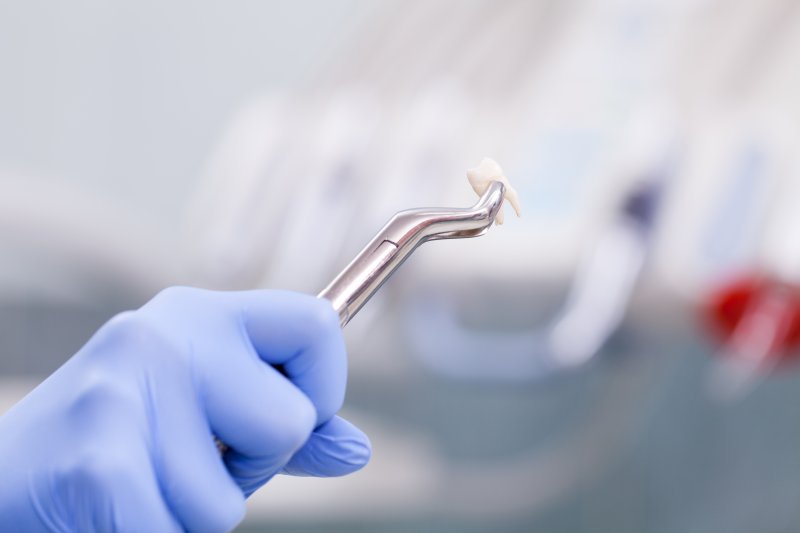
Learning that you require tooth extraction may not be the most exciting news to receive from your dentist but after discussing ways to replace it, you decide it doesn’t seem so bad. But how long will you need to wait to receive dental implants after tooth extraction? The answer to this question is based on various factors only a licensed dental professional can provide. Read on to discover the average timeframe you can expect when it comes to receiving your permanent prosthetics.
What Occurs After a Tooth Extraction?
Whether you accidentally lose a tooth, or one needs to be extracted, the same process occurs. Typically, when there is no tooth root to stimulate the jawbone, this area will begin to deteriorate over time. Also, natural, healthy teeth may begin to shift out of alignment trying to fill in the vacated area. Ultimately, if left untreated, it can cause problems with your bite as well as worn tooth enamel because of the change in your ability to chew properly. You may also experience chronic jaw pain that can lead to temporomandibular joint (TMJ) disorder.
How Long Before Dental Implants Can Be Placed?
In many cases, it requires an average of 10 weeks before an individual can undergo dental implant surgery, but it ultimately depends on the status of your overall health as well as the structure surrounding your tissue and bone. You may be eligible for immediate, early, or delayed placement depending on these factors.
If your dentist allows, and your tissue remains healthy after the removal of your tooth, it may be possible to receive your titanium implant post the same day. While osseointegration can take 3-6 months to complete (the fusing of the bone and implant), you can avoid any potential bone loss that would otherwise occur.
If early placement is possible, you’ll need to wait two or three months to allow for any damaged gum tissue or infection to go away. Bone resorption can occur during this time, but if the procedure is completed before an entire three months goes by, it is possible you can avoid a bone graft before receiving your dental implants in Harrisburg.
If delayed placement is recommended by your dentist, it is usually because the gums and tissue are badly damaged and bone loss has already occurred. A bone graft will be the next step in the process, as this area of your facial structure must be dense to support your implants and customized restoration. Once you are fully healed from the grafting procedure (i.e., 3-6 months), you can then start to plan for the placement of your dental implants.
What is important to remember is that having a tooth extracted often means an opportunity for better oral health. And by working with your dentist in Harrisburg, you can prepare for a new and improved smile that looks, feels, and functions naturally well into the future.
About the Author
Dr. Gary Klein is a dentist in Harrisburg who has been named one of the top 40 dentists in the country and a Top Dentist in Central Pennsylvania. Earning his Doctor of Dental Surgery degree from the NYU College of Dentistry, he completed a one-year residency in general dentistry at Lehigh Valley Hospital in Allentown before entering private practice. As a skilled professional who places and restores dental implants in-house, he and our team will ensure successful results when working with patients suffering from tooth loss. If you need to have a tooth extracted but prefer to seek out dental implants as a replacement option, contact us at (717) 652-6644.
